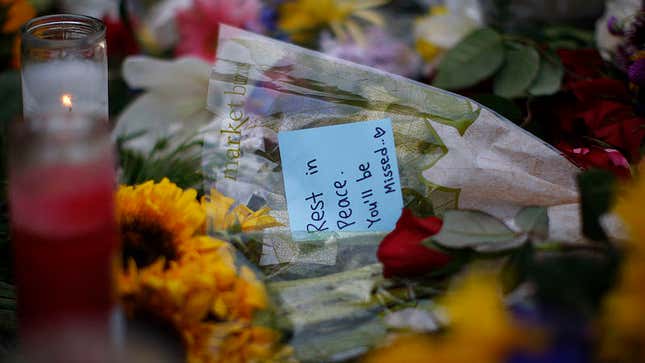In the Years Since the Isla Vista Shooting, the Incel Subculture Continues to Inspire Gunmen
Latest

This story was published in partnership with The Trace, a nonprofit newsroom covering gun violence in America.
Five years ago today, a 22-year-old college dropout fatally stabbed three people at his apartment in Isla Vista, California, then shot 11 people near the campus of University of California, Santa Barbara, killing three of them, before shooting himself to death.
In an email manifesto he sent out before his rampage, and in YouTube videos discovered afterward, the gunman made his motivation clear: He was angry that he was still a virgin and that women preferred other men over him. “I don’t know why you girls aren’t attracted to me, but I will punish you all for it,” he said in his final video. The targets of his attack, he said, were “the very girls who represent everything I hate in the female gender: The hottest sorority of UCSB.”
The Isla Vista killer identified himself as an “incel,” or a member of an online community of “involuntary celibates” who are united in their hatred of the women who don’t want to have sex with them — and the men who are better at finding romantic partners. In extreme cases, incels’ resentment has curdled into violent extremism, and in a country like the United States, where guns are easily accessible, this violence has on occasion taken the form of a mass shooting.
“If somebody is going to be violent, they may use whatever they have available to be violent,” said Emily Rothman, a professor at Boston University School of Public Health and an expert on intimate partner violence. “And guns are far more lethal” than other weapons, she added.
Since his rampage, the Isla Vista gunman has been hailed as a “saint” and a hero by other incels, and several American mass shooters have cited him as inspiration. The 40-year-old self-proclaimed misogynist who shot six women, two of them fatally, at a Tallahassee yoga studio last year name-checked the Isla Vista gunman in one of his final online posts. The 21-year-old who fatally shot two students and himself at his former high school in Aztec, New Mexico, in 2017 used the Isla Vista shooter’s name as an online pseudonym and called him a “supreme gentleman.” The man who carried out the 2015 Umpqua Community College shooting in Oregon, which left nine people dead and eight others wounded, wrote in an online manifesto that he was a virgin with “no friends, no job, no girlfriend,” and said that he and others like him — including the Isla Vista gunman — “stand with the gods.”
-

-

-

-

-

-

-

-

-

-

-

-

-

-

-

-

-

-

-

-

-

-

-

-

-

-

-

-

-

-

-

-

-

-

-

-

-

-

-

-








































